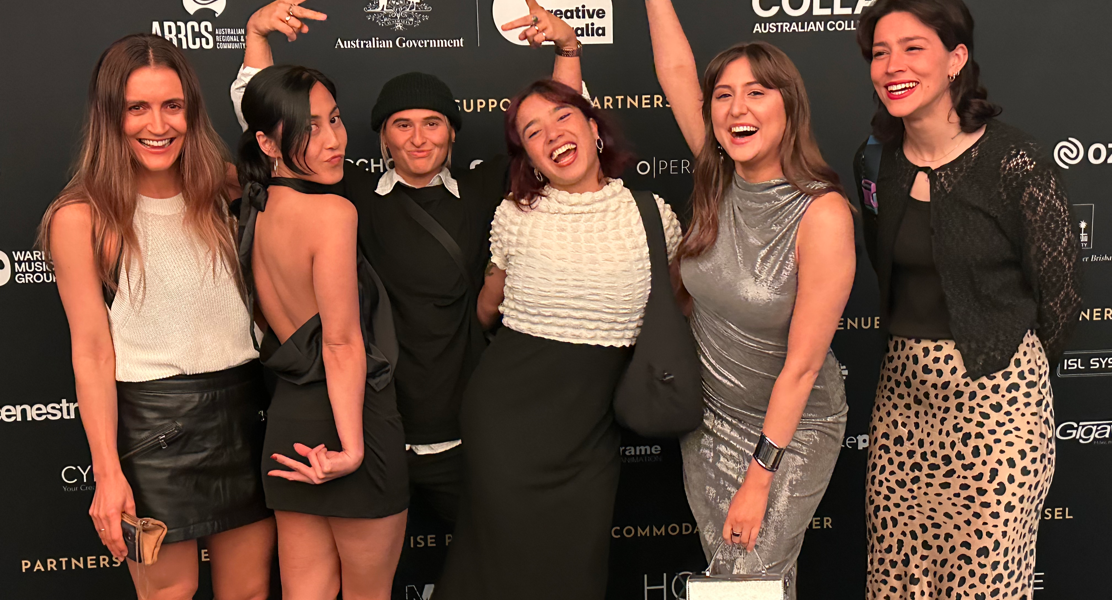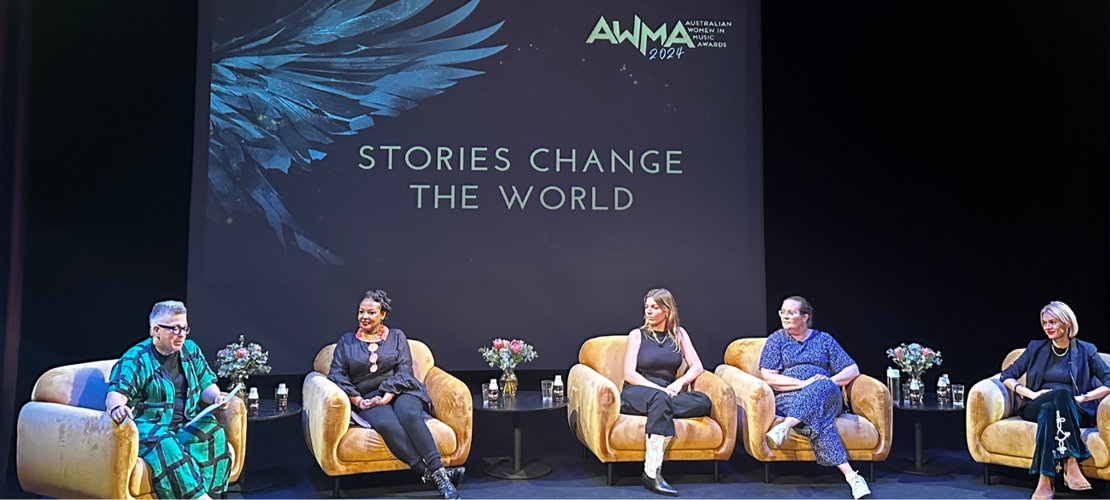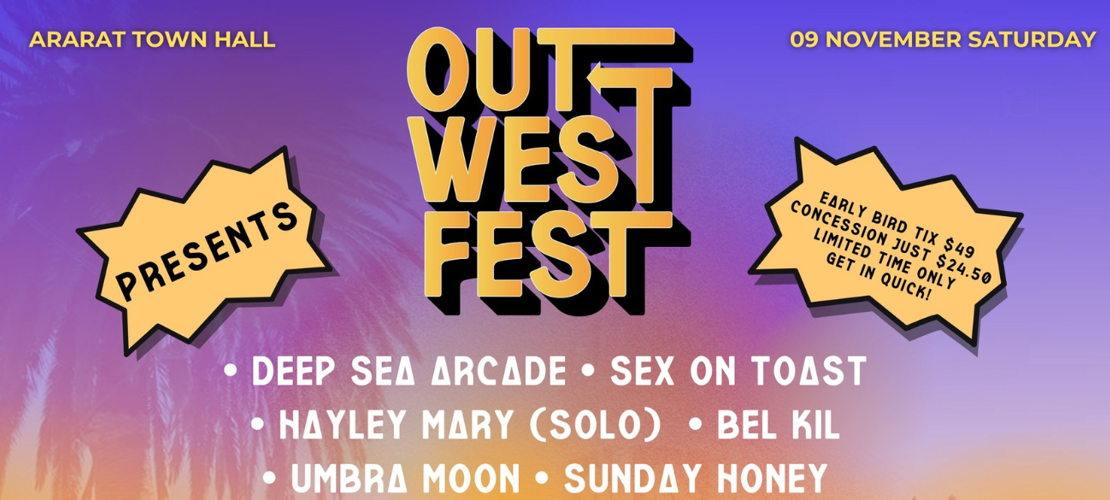

We caught up with Collarts alumna, staff member, and all-round superstar Annabel Kilpatrick, who recently attended the Australian Women in Music Awards in Brisbane/Meanjin. Annabel joined Collarts graduates from Music Performance, Audio Production, and Music Production at the event. She shares her insights on how society can uplift women in the music industry and continue to empower, celebrate, and recognise all voices in the community.
What was the highlight of the AWMA event?
I loved spending time with other alumni, catching up on life, music, and the industry. It was amazing to chat and share experiences while absorbing everything the conference had to offer.
Being surrounded by so many talented women, exchanging ideas and inspiration, was incredible.
How has attending the Australian Women in Music Awards inspired you in your own career or personal life?
The event reinforced the importance of community and supporting each other. As a solo songwriter and producer, I'm not into the hustle and competition. Growing up on a farm in western Victoria, community has always been a big part of my life.
Having each other’s backs is essential to me, and the conference reminded me just how vital that is.

Were there any particular award recipients or nominees that resonated with you?
We were all rooting for Katy Richards (Collarts Event Management Program Leader), who truly deserves the Frontier Touring Live Production Award—I’m sure she’ll get it in the future. Hearing Tana Douglas’ story, as Australia’s first female roadie, was incredible. She’s a trailblazer, having toured with bands like AC/DC and The Who. Her journey breaking into a male-dominated industry and becoming a respected leader was inspiring. It reminded me of the importance of persistence and standing your ground in this industry, despite its many challenges.
How can society continue to celebrate and recognize the achievements of women, non-binary, and gender non-conforming (GNC) individuals in the music industry?
There isn’t a simple answer, but it’s probably similar to my last point:
We need to believe in and uplift each other. This includes promoting education and awareness, creating spaces for diverse voices, actively supporting their work, and ensuring they receive the recognition they deserve.
Highlighting the contributions of men who support these efforts is also essential, as their advocacy can amplify voices that have historically been marginalized. It’s important we approach these discussions with an open mind and encourage collaboration instead of creating divisions based on negative assumptions about men.

Tell us about your work and any exciting projects you’re working on now or in the future.
I have a solo music project called Bel Kil, and I’ve just released a new single, Not Whatchu Think, which I’m really excited about! It’s a raw, honest anthem about choosing your own path over societal pressures. My full EP, Wasted Emotion, is out in early February.
I’m also organizing Out West Fest, a music festival in Ararat, near my hometown of Great Western. The festival aims to bring top Australian acts to a regional area while keeping ticket prices accessible. I’m passionate about building community through music and creating opportunities for both emerging and established artists. We’ve lined up incredible bands like Deep Sea Arcade, Sex On Toast, and Hayley Mary from The Jezabels, along with Collarts band Sunday Honey, myself and my band, plus more with DJs between sets. I also teach music production at Collarts, which I love.
What are some of the barriers you’ve faced as a female/non-binary/GNC artist or professional in the music industry, or in your studies?
Initially, I didn’t notice many barriers because I was so focused on learning and pursuing my dreams. Growing up on a farm with male cousins, I had a drive to do things just as well, if not better. But over time, I began noticing subtle comments. One of the biggest challenges has been breaking through assumptions about my role in the creative process. As a female producer, engineer, and songwriter, I sometimes feel there’s an expectation that I need someone else to handle the technical side—even though I do it all myself. This is particularly noticeable in live situations and occasionally in teaching.

What advice would you give to young women, non-binary, and GNC people looking to break into the music industry?
The music industry demands drive and resilience. Do it because you love music—it’s tough for everyone, but also deeply rewarding! Stay positive, believe in your vision, and don’t be afraid to take up space. There’s no single path to success, so trust your instincts and follow your passion, whether that’s performing, producing, or something else.
Build your community, be genuine, and surround yourself with supportive people who inspire you.
A strong network can make a huge difference in this challenging industry.